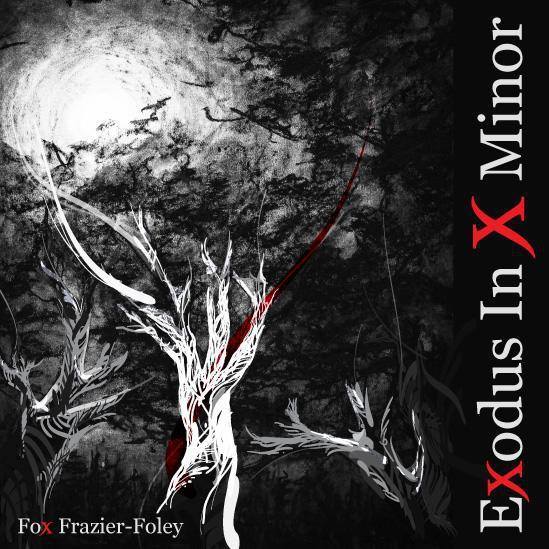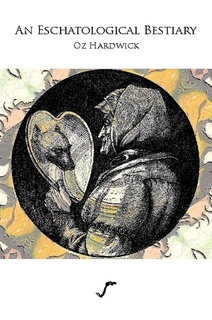Exodus in X-Minor by Fox Frazier-Foley
– Reviewed by Steve Nash –
Fox Frazier-Foley’s Exodus in X-Minor is an elusive, unsettling work that embeds often direct retellings of the darkest moments of contemporary urban American life in a haunting and surreal frame. It is ambitious and difficult, but very much deserving of its status as the winner of the 2014 Sundress Publications Chapbook Competition.
The stories told here paint dark portraits of characters seemingly half in love with their own downfall, be it through lust, guns, drugs, or an ever-present supernatural influence. These kinds of tales are often refigured through the lens of classical mythology, but for Frazier-Foley this is an unnecessary conceit. These narratives are simultaneously real and mythological in their own right, communicated with great perspicuity through the titles of the poems themselves: ‘For Maddy Lerner, Age 4, Accidentally Killed at an Outdoor Firing Range in Upstate New York’, or ‘Peter Was One of Four Catholic Workers in Upstate New York Who Spilled His Blood at a Military Recruitment Center to Protest the USA’s Invasion of Iraq, and Was Subsequently Arrested and Imprisoned’. These are stories of real people, rendered through images torn aggressively from the contemporary moment.
This visceral realism is delivered with clarity and direct language that makes the events immediate and tactile:
My grandmother, bed-ridden, bled
from her kidneys, her brain, and the skin
beneath my nails began to blue
chronically.
This tangible reality is housed within an uncanny world in which past lives, nightmares, and parallel worlds are distinct possibilities. It is here that the (still visceral) language and images of Exodus in X-Minor carved permanent spaces in my mind:
Frogs
stormed our cellar, declaring one
by one, we’ll gain the portals
with a shock of teeth.
In spite of the density of the text, it is never impenetrable. In fact, there are moments where the language is so conversational in tone that the directness may be abrasive to some ears, for example, in the aforementioned ‘For Maddy Lerner, Age 4, Accidentally Killed at an Outdoor Firing Range in Upstate New York’:
Maddy, when I was your age,
Andy Boyle brought bullets
to show & tell. He got detention
and a beating…
The directness of such instances is never without purpose. Here the speaker offers a counterbalance to the romanticised view of violence, unadorned by gratuitous and inane polemicising. The facts of the story tell all that needs to be told. When juxtaposed with moments of imaginative flight and language that turns away from the gritty realism of the metropolis, this emphasis is all the more striking, particularly in the pamphlet’s more playful moments:
…on the third day he shed honey bandages
left me for good chased after by bees.
Playfulness is also revealed in the form and shape of the poems. Some are conservatively spaced, their tight columns reflecting the grim and unpleasant places that the speakers guide their readers through. Elsewhere, words lurch across the page in patterns as surreal as the dreamscapes they seem to emanate from.
Fox Frazier-Foley’s own words, ‘to open that door & not be sorry’, seem a fitting note to finish on. Exodus in X-Minor is not a straightforward book by any means, but it is one that will stay alive in the mind long after you close its doors.





